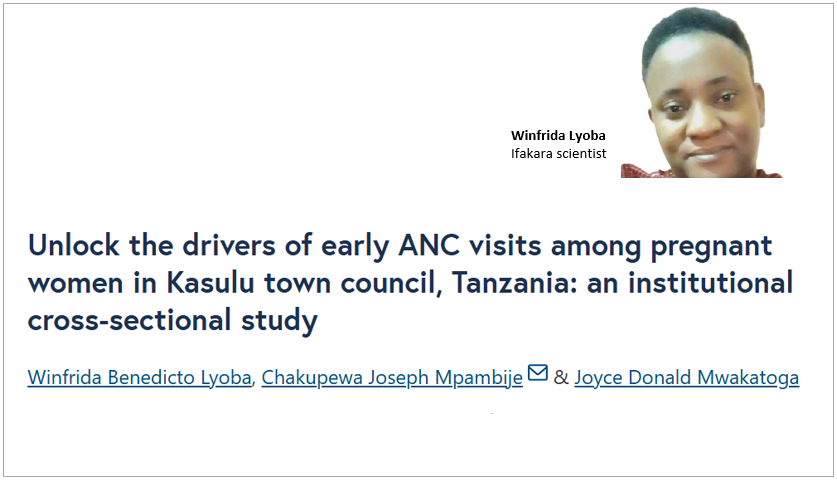
MATERNAL HEALTH: Only 32 in 100 pregnant women go to the clinic early in western Tanzania, study reveals

A new study from Kasulu Town Council in Western Tanzania has raised concerns over the low number of pregnant women starting antenatal care (ANC) in their first trimester – an essential step in protecting the health of mothers and babies.
According to the research, published on the journal of Reproductive Health in October, only 32 in 100 (approximately 32%) pregnant women in Kasulu, Kigoma Region begin ANC early, despite global health recommendations.
“The results confirm that early ANC visit in Kasulu Town Council is low, with only 32% of women beginning care in the first trimester, a proportion that is slightly below the national average of 35%,” the scientists noted.
This is a major concern because early ANC helps detect risks sooner, provides preventive treatments, and supports safer pregnancies. The findings are especially important as Tanzania and other low- and middle-income countries work to meet Sustainable Development Goal (SDG) 3, which aims to reduce maternal and newborn deaths by 2030.
Who conducted the study?
The study was led by Winfrida Benedicto Lyoba from the Ifakara Health Institute. She worked alongside colleagues Chakupewa Joseph Mpambije of Mkwawa University College of Education (University of Dar es Salaam), and Joyce Donald Mwakatoga from the Sokoine University of Agriculture. Together, the team examined factors influencing early ANC attendance among women in Kasulu.
Why are women delaying ANC visits?
The study, conducted between March and April 2020, interviewed 320 mothers and 40 participants. The researchers explored the social, economic, and personal factors influencing when women seek care.
From the interviews, many women cited lack of support from male partners, limited knowledge of when to start ANC and socio-cultural beliefs and norms that discourage early disclosure of pregnancy as reasons for delaying visits. In some households, men still perceive pregnancy and childbirth as “women’s issues,” leaving expecting mothers to handle the process alone.
Health workers who took part in the study added that some women postpone ANC visits because of fear of judgement from healthcare workers, especially younger or first-time mothers.
On the other hand, women were more likely to start ANC early if they:
- Were older (younger women tended to delay)
- Attended the clinic accompanied by their partners
- Knew the danger signs in pregnancy
- Had previously given birth
Interestingly, factors such as household income and knowledge of the recommended ANC timing did not strongly influence early attendance—showing that the issue goes beyond awareness or finances.
Why these findings matter
Early ANC is one of the most effective ways to prevent complications during pregnancy and childbirth. Delaying ANC can result in missed opportunities for:
- Screening for high-risk conditions such as high blood pressure
- Offering preventive treatments and components
- Providing counselling on nutrition and birth planning
- Monitor fetal development and prepare women for safe delivery
In regions like Western Tanzania where maternal and newborn mortality remains a concern, improving ANC uptake is critical to saving lives.
What needs to be done
The study authors recommend tailored interventions to encourage early ANC attendance. These efforts should focus on:
- Increasing awareness on the importance of early ANC visits
- Engaging men to support their partners during pregnancy
- Providing ANC-related education before women become pregnant
- Addressing socio-cultural beliefs that delay care
- Ensuring respectful, supportive care at health facilities
If well implemented, these actions could help Tanzania progress toward its maternal and newborn health targets.
The authors further emphasize that integrated interventions, combined with strong stakeholder engagement, could help strengthen the health system and support the development of effective strategies to improve early ANC initiation—not only in Kasulu Town Council, but across Tanzania.
Read the publication, here.
